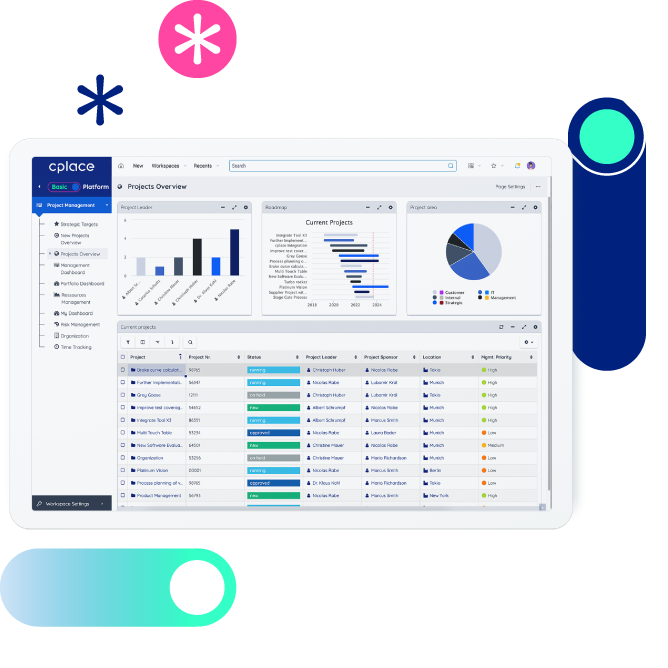Project Management

What is Project Management?
Project management is a systematic approach to planning, executing, and controlling projects. A project is a time-limited effort to achieve specific goals and outcomes, often with limited resources. Project management involves coordinating activities, resources, schedules, and stakeholders to ensure that the project is completed successfully.
Are there different project management methodologies?
There is not just “one” way to manage a Project. Different project management methods and techniques can vary depending on the type and scope of the project, reflecting the needs and requirements of individual teams and organizations. There are different approaches, with a basic distinction between classic and agile project management.
Classic Project Management Techniques
- Waterfall Model
- PRINCE2 (Projects in Controlled Environments)
- Gantt Charts
These methods are structured and well established in practice. They are particularly well suited to projects where the requirements are well understood at the outset and do not change significantly during the project.
Agile project management methodologies
- Scrum
- Lean
- Kanban
Agile approaches are particularly well suited to projects where requirements are not fully predictable and rapid adjustments are required.
For some time now, there has been a trend toward hybrid project management, a combination of classic and agile project management.
Project Management Phases
Whether traditional or agile, project management typically involves the following steps:
- Project initiation
- Planning
- Execution
- Monitoring and control
- Closure
- Post-processing
Project Management Roles
There are several roles in project management that contribute to the successful planning, execution, and completion of a project. The most important of these roles are:
- Project Managers and Project Leaders:
The central project management role. Responsible for overall project management: planning, organizing, monitoring, and controlling, communicating with stakeholders, and ensuring that project goals are met.
- Project Team:
Team members are the people who perform the tasks and work packages of the project. They work closely together to achieve the project goal. - Sponsor:
Usually an organizational unit or a member of senior management. Provides goals and requirements and ensures that the project is aligned with business goals and strategies. - Stakeholders:
Individuals or organizations that are affected by or benefit from the project. They have interests, expectations, and requirements for the project and therefore need to be well-informed and involved throughout the project.
Related terms: Agile Project Management, Classic Project Management, Hybrid Project Management
